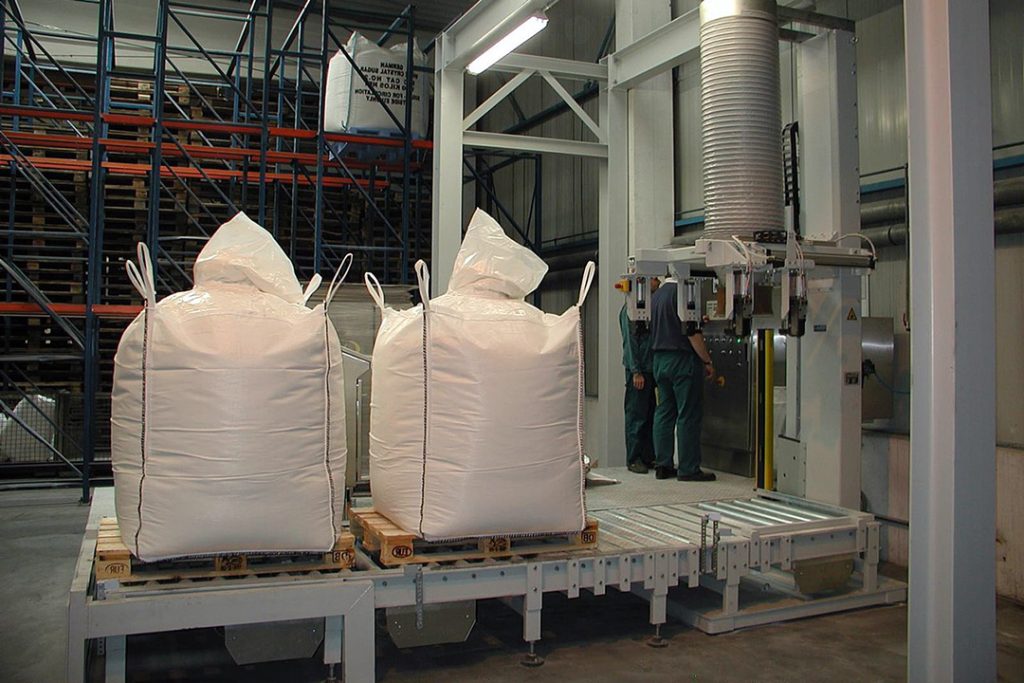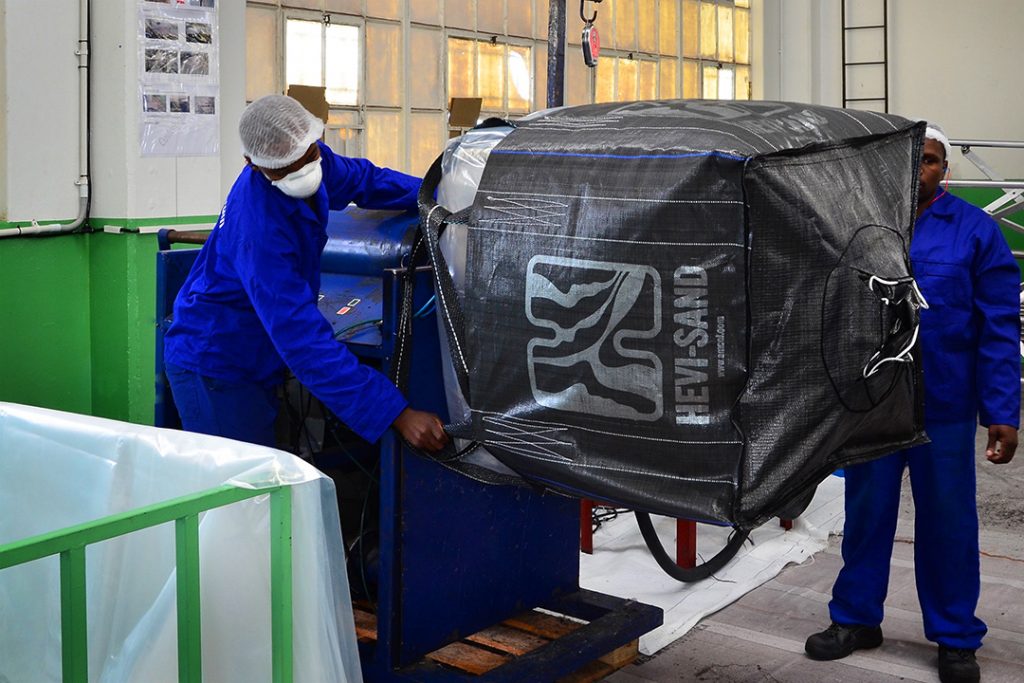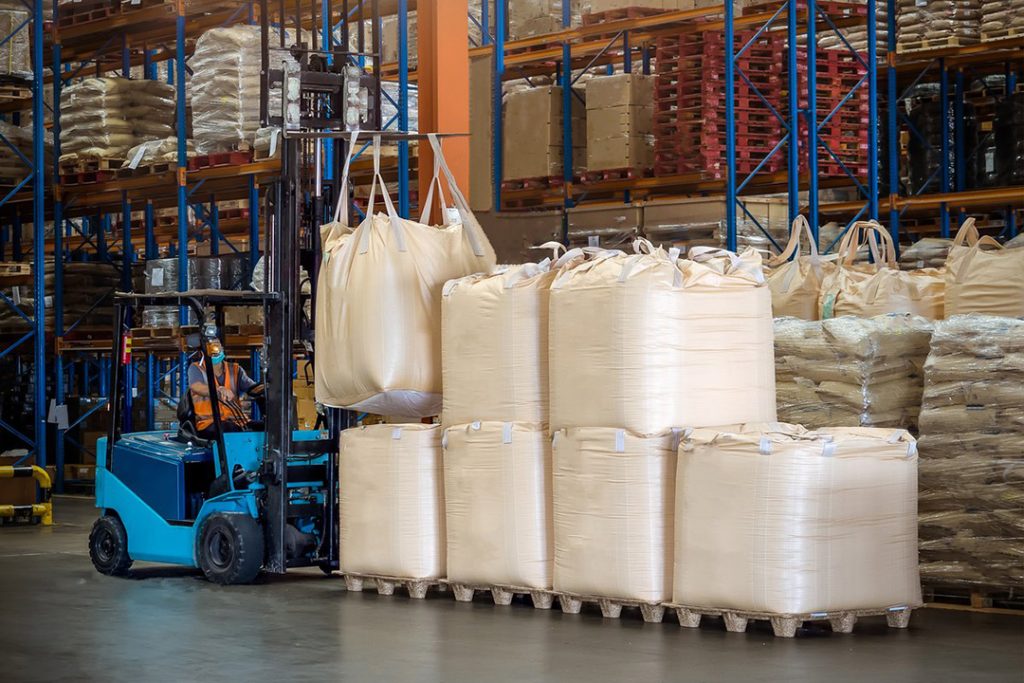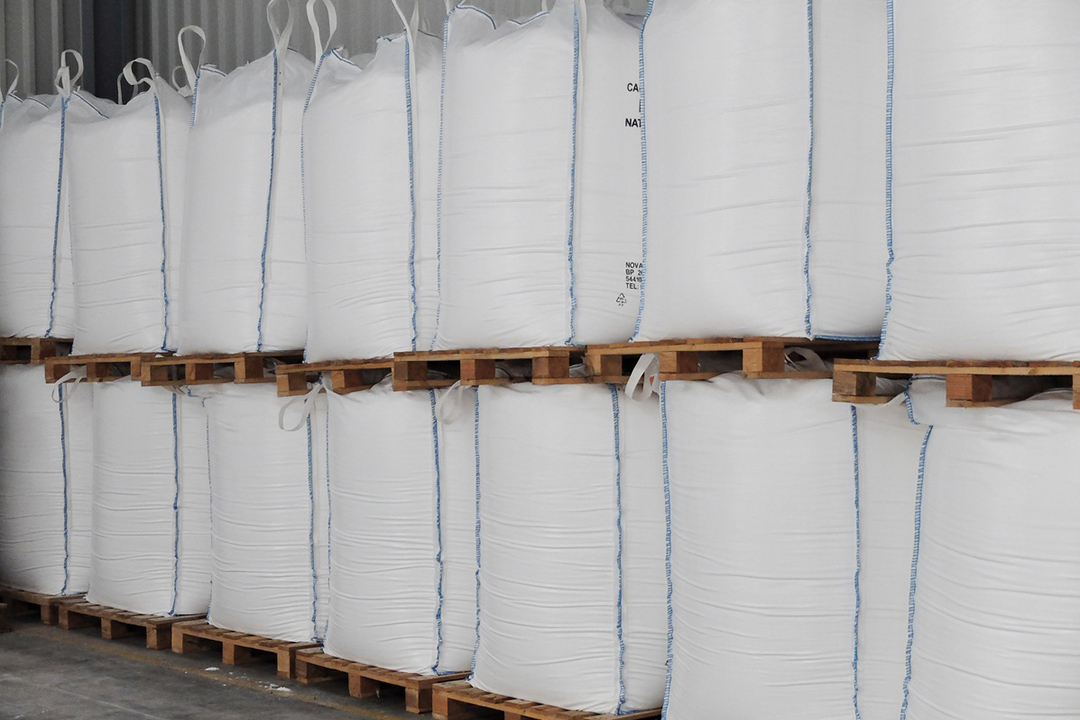The modern supply chain is complex and can span the entire globe. The ability to track your packaging has become more than a logistical need; it’s a vital part of operational excellence and efficiency.
Monitoring the flow and condition of products, including their packaging, offers companies priceless data that enables them to organise their schedules and procedures more precisely. This increased visibility improves efficiency, lower risks, and eventually a stronger bottom line.
Custom Bulk Bags is a leading manufacturer and supplier of bulk bags in South Africa. We produce up to 3.5 million units annually, and our products can safely hold between 500kg and two tonnes of material per bag. We offer various customisable bulk bags and can include certain optional extras that improve the traceability of your packaging and goods.
This helps you instil a more transparent and accountable supply chain with improved inventory management in the event of delays or disruptions. Essentially, it allows logistics managers and decision-makers to know where their bulk bags are at any given time.

How to track your bulk bags
Businesses that use bulk bags can gain a lot from using efficient tracking systems. Here are five essential methods to follow your bulk bags during transit:
1. Customised labels – Using customised labels is a fundamental yet effective way to track bulk bags. Numerous details on the particular batch of items in the bag, its origin, destination, and even particular handling guidelines can be found on these labels. Important information is sent alongside the actual product when a consistent and well-designed labelling system is put in place.
This makes it possible for staff members at different supply chain points to promptly recognise and handle the bulk bags under predetermined procedures. Although labels by themselves don’t offer real-time location updates, the data they include is essential for manual tracking and documentation, serving as the foundation for a more thorough tracking system.
Information printed on long-lasting, weatherproof labels, such as product codes, batch numbers, and manufacturing dates, can greatly improve internal tracking and supply crucial data for subsequent procedures. These labels are slipped into a special pouch on the side of the bulk bag to protect them during transit.
2. Barcodes or QR codes – Barcodes and QR codes are a more effective and data-rich method of tracking as they increase the level of sophistication. These machine-readable symbols are simple to scan with handheld scanners or even smartphones, giving users instant access to a multitude of digitally recorded data.
When used on bulk bags, barcodes or QR codes can connect to particular data records that include information on the contents of the bag, the date of manufacture, the batch number, the intended receiver, and its intended path. This eliminates the need for manual data entry and lowers the possibility of human error by enabling rapid and precise data capture at several supply chain checkpoints.
In addition, a more dynamic view of the bulk bag’s state and travel can be obtained by updating the digital data associated with these codes in real-time. For companies wanting to expand their tracking capabilities beyond simple labelling, this technology is an affordable and scalable alternative.

3. RFID tags – Radio-Frequency Identification (RFID) tags are a fantastic alternative for companies needing a more sophisticated and automated way to track packaging. Without direct line of sight, bulk bags can be identified and tracked thanks to these tiny electronic devices that produce radio waves that RFID scanners can read.
As bulk bags travel past RFID readers positioned at several supply chain nodes, including loading docks, warehouses and transportation hubs, their movement can be tracked in real time. This system provides a constant and automated flow of tracking data, with notable speed and accuracy benefits.
The advantages of real-time visibility and less manual intervention can result in considerable long-term productivity savings, especially for companies with high volumes of bulk bag movements, even though the initial investment in RFID infrastructure may be more than that of labels or QR codes.
4. Batch numbering – Even in the absence of new technologies, having a reliable batch numbering system is essential to traceability. Each production run of bulk bags or the particular items placed within them is given a unique batch number, which makes it possible to track a collection of bags with similar origins and traits. For recall and quality control, this is especially important.
The batch number makes it possible to quickly identify and isolate all the affected bulk bags if a problem is found with a particular batch of material or packaging. This internal tracking system makes it easier to manage product lifecycles and adds a critical element of accountability.
5. ERP system integration – The most thorough way to track bulk bags is to install specialised digital tracking systems that work in unison with a company’s Enterprise Resource Planning (ERP) system. A centralised, real-time view of the location and status of all tracked bulk bags is made possible by these advanced systems, which can combine data from many tracking techniques, including scanned QR codes, RFID readings, and manual label entries.
Linking tracking data with other crucial business operations, such as inventory control, order fulfilment, and logistics planning, can be achieved through integration with the ERP system. Throughout the whole supply chain, this comprehensive approach facilitates data-driven decision-making and offers unmatched transparency. These systems often have better data analytics, more comprehensive reporting capabilities, and automated alerts for delays or deviations, giving companies better tools to streamline operations and boost efficiency.

Benefits of improved tracking
The options above can unlock many advantages for companies. The include:
- Increased transparency – All parties involved in the supply chain, including manufacturers, distributors, suppliers, and customers, benefit from improved visibility of the location and status of bulk bags.
- Improved supply chain management – Businesses can make proactive adjustments to guarantee more seamless and effective supply chain operations, predict possible delays, and optimise their logistics.
- Enhanced accountability – At every point of the supply chain, accountability is improved by having clear tracking records, which also make it simpler to spot and resolve any potential problems or inconsistencies.
- Enhanced efficiency – Simplified tracking procedures minimise errors, cut down on human labour, and yield insightful data that can be used to pinpoint bottlenecks and boost overall operational effectiveness.
Add tracking capabilities to your bulk bags
Traceability is absolutely vital in the modern supply chain. Custom Bulk Bags can offer clients packaging solutions that satisfy their needs, including the incorporation of efficient tracking systems. Our knowledgeable staff can help you with the ordering process, providing guidance on the best tracking options to meet your unique needs.
We can include label pouches on your bulk bags and custom print labels with barcodes and QR codes. We can also work with trusted suppliers to incorporate RFID devices and other tracking technologies into your batch of bulk bags. Work with Custom Bulk Bags to improve your supply chain’s efficiency and visibility. For more information about our bulk bags or to get advice on the ideal designs, please contact us today.
___
Custom Bulk Bags is a leading South African manufacturer of woven polypropylene bags for various industries, such as mining, chemicals and food. We are a Level 2 B-BBEE manufacturer and supplier and fall under the ownership structure of Deneb Investments Limited. For more information on our products, contact sales@custombulkbags.co.za
